A Primer On 501(c)(4)’s, 527’s, LLC’s and Officeholder Expenses
Mark Brewer of Goodman Acker, P.C. received his J.D. from Stanford University Law School in 1981 and his A.B. with honors from Harvard College in 1977. He was admitted to practice in Michigan in 1983. Brewer was an associate, then a partner, in the firm formerly known as Sachs Waldman. In 1995 he was elected Chair of the Michigan Democratic Party and served as MDP Chair or Executive Chair until 2013, the longest serving MDP Chair. From 1995 to 2013, Brewer was a member of the Democratic National Committee. Brewer has been a delegate to 5 Democratic National Conventions, chairing the Michigan Delegation each time. As a lawyer, Brewer’s principal areas of practice include union-side labor, election, campaign finance, and non-profit law.
501(c)(4)’s
501(c)(4)’s must engage in social welfare activities as their primary purpose. A 501(c)(4)’s income is tax exempt, but donations to it are not tax deductible. It cannot be used for personal purposes or to provide personal benefits to any person.
If a 501(c)(4) is incorporated—and most are—in Michigan it cannot expressly advocate for or against candidates, e.g., “vote for” and “vote against.” In contrast, 501(c)(4)’s may engage in issue communications related to state and local candidates subject to disclaimer requirements. They may also do the following: support or oppose ballot proposals, lobby on their issues, and conduct nonpartisan voter registration, education, GOTV, voter protection, and litigation.
501(c)(4)’s must file annual tax information returns with the IRS. If incorporated, they also must file annual reports with the State of Michigan. If they conduct ballot question work, they must file Michigan Campaign Finance Act (“MCFA”) reports. If they do lobbying work, they must file lobbying reports.
To start a 501(c)(4), a nonprofit corporation must be created and filed with the State of Michigan. An Employer Identification Number (“EIN”) is then obtained from the IRS, and a Form 8976 is filed with the IRS. The incorporator then appoints the first board of directors, which must have at least three members. The board must meet to adopt bylaws, elect officers, authorize a bank account, and conduct other initial business. The board then must regularly meet to review financial reports, authorize expenditures, make decisions, and keep minutes.
501(c)(4)’s have become controversial recently in Michigan because of their abuse by former House Speaker Chatfield, Senate Majority Leader Shirkey, and others. These abuses have led to criminal investigations, campaign finance complaints, and justified calls for reforms. Those who want to create and use 501(c)(4)’s must do so properly.
527’s
This is an Internal Revenue Code provision that makes political organizations—including candidate committees, PAC’s, and political parties—tax exempt. The term “527” has evolved into a label for political organizations and activity that is not subject to federal or state campaign finance laws. They are often formed to serve as officeholder expense funds.
527’s are required to file initial notices with the IRS (Form 8871). They are also required to file quarterly or monthly reports with the IRS on contributions and expenditures (Form 8872). These reports are publicly available. They may have to file annual tax information returns with the IRS, as well.
LLC’s
To create a limited liability company (“LLC”), the following steps must be completed:
Choose a name and register it with the Michigan Department of Licensing and Regulatory Affairs (“LARA”);
Name a registered agent;
Prepare an operating agreement;
File the articles of incorporation with LARA;
Get an employer identification number (“EIN”) from the IRS; and
Open a bank account.
LLC’s can also be abused because donors can attempt hide their identities by making donations to an LLC, which then donates the money to a campaign committee, never disclosing the original donor identity. This practice has led to successful campaign finance complaints.
Michigan Campaign Finance Act, Section 169.209
The Michigan Campaign Finance Act (“MCFA”) allows officeholders to pay the incidental expenses of holding office from their campaign committees. The Act defines an “incidental expense” as expenses that are “ordinary and necessary” to carry out the business of an elective office. The MCFA includes several examples of incidental expenses, including but not limited to the following: assisting, serving, or communicating with constituents; office equipment, furnishings, or supplies; a district office; attending conferences, meetings, receptions, or similar events; a publicly owned or temporary residence in Lansing; travel, lodging, or meals; donations to charitable organizations; funding ballot question committees; tickets to political fundraisers; relevant educational courses or seminars; advertisements without express candidate advocacy; consultation, research, polling, and photographic services; fraternal, veteran, or other service organization fees; tax liabilities incurred by candidate committees; accounting, professional, or administrative service fees; and debts or obligations incurred by the candidate committee.

